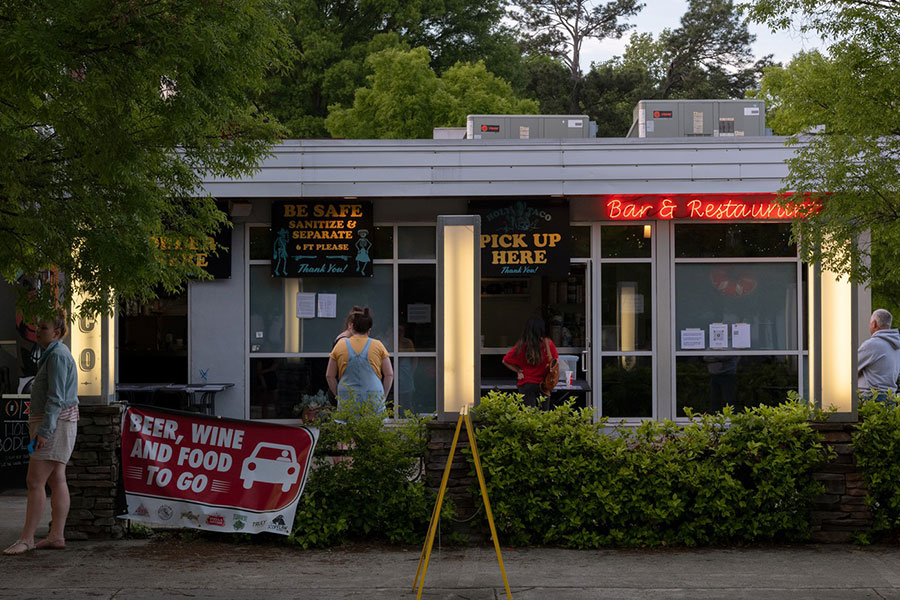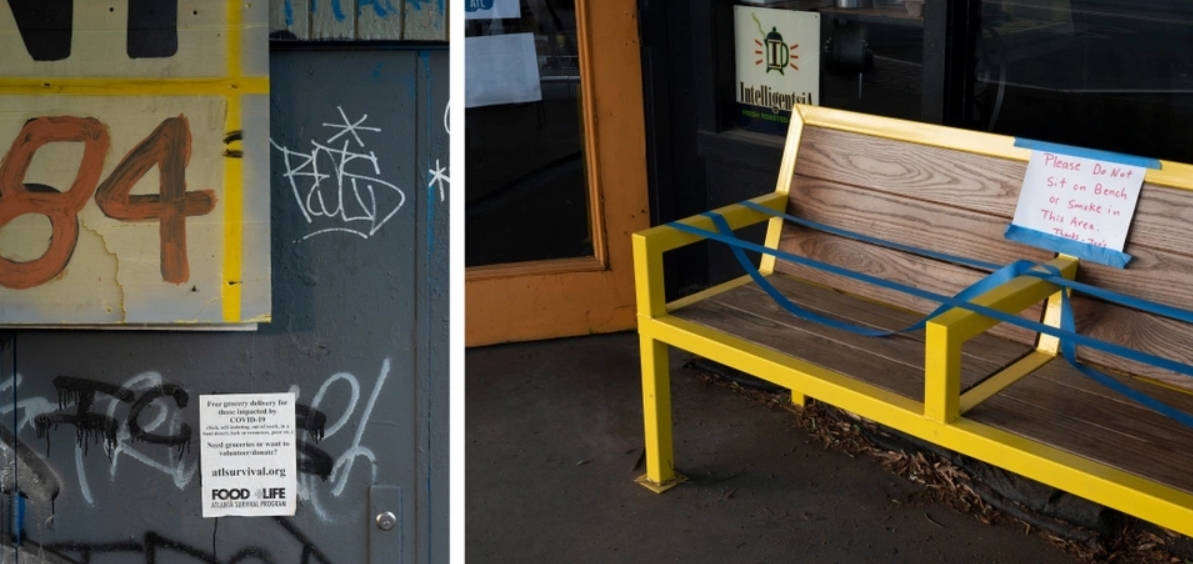General Discussion
Related: Editorials & Other Articles, Issue Forums, Alliance Forums, Region ForumsThe Pandemic Will Change American Retail Forever
The big will get bigger as mom-and-pops perish and shopping goes virtual. In the short term, our cities will become more boring. In the long term, they might just become interesting again.https://www.theatlantic.com/ideas/archive/2020/04/how-pandemic-will-change-face-retail/610738/

Last weekend, I walked a mile along M Street in Washington, D.C., where I live, from the edge of Georgetown to Connecticut Avenue. The roads and sidewalks were pin-drop silent. Movie theaters, salons, fitness centers, and restaurants serving Ethiopian, Japanese, and Indian food were rendered, in eerie sameness, as one long line of darkened windows. Because the pandemic pauses the present, it forces us to live in the future. The question I asked myself walking east through D.C. is the question so many Americans are all pondering today: Who will emerge intact from the pandemic purgatory, and who will not? In the past three weeks, I’ve posed a version of that question to more than a dozen business owners, retail analysts, economists, consumer advocates, and commercial-real-estate investors. Their viewpoints coalesce into a coherent, if troubling, story about the future of the American streetscape.
We are entering a new evolutionary stage of retail, in which big companies will get bigger, many mom-and-pop dreams will burst, chains will proliferate and flatten the idiosyncrasies of many neighborhoods, more economic activity will flow into e-commerce, and restaurants will undergo a transformation unlike anything the industry has experienced since Prohibition. This is a dire forecast, but there is a glimmer of hope. If cities become less desirable in the next few years, they will also become cheaper to live in. In time, more affordable rents could attract more interesting people, ideas, and companies. This may be the cyclical legacy of the coronavirus: suffering, tragedy, and then rebirth. The pandemic will reset our urban equilibrium and, just maybe, create a more robust and resilient American city for the 21st century.

1. THE BIG ACCELERATION
To see how the pandemic is already reshaping American retail, you don’t even have to go outside and count storefronts. Your receipts and credit-card statements tell the whole story. On Thursday, the U.S. Commerce Department reported that retail spending in March collapsed by the largest number on record. Travel spending—including on airlines, hotels, and cruises—is down more than 100 percent, if you include refunds. Department stores and clothing stores are facing an extinction-level event after having experienced years of decline. Pockets of resiliency and even strength include grocery stores and liquor stores, which in March had their best month of growth on record. Home-improvement spending is up as well. Some of these changes are violent interruptions to modern life, like the closing of gyms and cessation of sit-down restaurant service. But in the long term, COVID-19 probably won’t invent new behaviors and habits out of thin air as much as it will accelerate a number of preexisting trends.
One obvious example is that the pandemic is accelerating the retail reckoning. Over the past 50 years, the number of American malls grew almost twice as fast as the U.S. population, to the point that in 2015, the U.S. had 10 times more shopping space per capita than Germany. Such abundance makes no sense in the age of Amazon. Overleveraged, overbuilt, and oversprawled, American retailers had a long way to fall as the country moved toward online shopping. In 2017, and again in 2019, physical-store closures reached an all-time high, led by the decay of suburban totems like Sports Authority and Payless. The year 2020 may bring the death of the department store, marking the end of that 200-year-old retail innovation after decades of decline. Macy’s has furloughed more than 100,000 workers. Neiman Marcus has filed for Chapter 11. More legacy department stores and apparel retailers will almost certainly follow them to bankruptcy court or the corporate graveyard. As these anchor stores shutter, hundreds of malls that were already wobbling in 2019 will be knocked out in 2020.
snip
a lot more at the link at the top
beachbumbob
(9,263 posts)Celerity
(43,485 posts)beachbumbob
(9,263 posts)and then the impact of massive debt and most likely huge devaluation of our currency to compensate
mahina
(17,693 posts)Right?
Celerity
(43,485 posts)I can see the natural FOREX market forces having some effect on valuation, but little chance internal US forces will do a forced devaluation. The socio-economic upheaval from that would be courting disaster on an society-wide level of epic proportions. If you suddenly cleave off 30%, 40%, or even 50% of the populace's purchasing power, there will be nationwide riots at never before-seen levels.
The main people who have been pushing these scenarios (for decades) have been the gold-bug types, the doom-is-nigh preppers, and of a newer vintage, the crypto currency fanboys/girls. I put little to no stock in their prognostications. We do hold physical gold and silver, but not to any massive degree, and mainly as a complimentary hedge to potential inflationary forces. It is not a key component of our overall portfolio.
genxlib
(5,530 posts)While the internet has done some significant damage to the industry, I don't ever see much ink spent on what the industry does to itself.
Much is written about the demise of the mall but they never seem to note the shiny new mall across town. In my lifetime, there have been several evolutions of the retail mall. It started as an outdoor promenade before the revolution of an enclosed air conditioned space. Then that boring linear space became a lively entertainment complex that blended restaurants and bars into the mix. Now they have devolved back into outdoor promenades that mimic neighborhoods.
In my experience, every dead underutilized mall can be followed directly to a newer more exciting option that is attracting patrons and stores. In some cases, the retailers don't make the shift and die in the husk of the old mall. Some newer retailers have done OK in the newer real estate.
The story of real estate development is a big part of this. Seeing it entirely as an e-commerce problem doesn't really tell the entire story
duforsure
(11,885 posts)And restaurants will be run cheaper by not having to have the restaurant part of it, just a kitchen , and delivery people.The overhead having box stores is going to be gone after this.